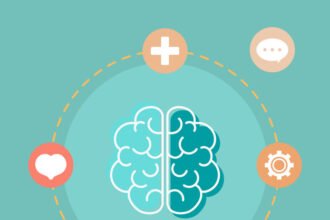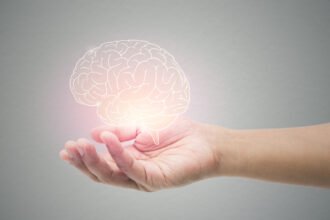Getting diagnosed with dementia is a life-altering experience for many people. It brings many emotions, including anger, shock, fear, and grief. A combination of these emotions can trigger mental health problems in some people. According to experts, up to 40 percent of people with Alzheimer’s disease suffer from significant depression.
Some people struggle to control the whirlwind of emotions during this big adjustment. Without proper care, the issues can escalate, adversely affecting the brain. If your loved one is living with dementia, you can help them by educating yourself about how the disease is affecting their mental health.
Cognitive Impairment
Dementia affects brain functions, leading to cognitive impairment among individuals who have been diagnosed. When a person’s mental abilities, such as thinking and memory skills, start to notice a decline, they experience mild cognitive impairment.
With time, a senior’s cognitive abilities may further decline, making it challenging to perform basic tasks by themselves. They are likely to be at a more severe stage, during which they will require professional care. You can help your loved one by looking into homes for dementia patients that provide specialized care.
Although it might be a big adjustment to move into a new place, consistent care from registered nurses and trained staff can slow down cognitive decline. Dementia care homes usually offer memory-engaging activities and the opportunity to socialize with other seniors, which can help an individual with dementia. Keeping the mind and body active will stimulate the brain and reduce the risk of further cognitive decline.
Depression
Depression can occur at many stages of dementia. A person may experience symptoms of dementia in the early stages of the diagnosis after hearing the news. As time passes, dementia symptoms may escalate due to social isolation or the inability to comprehend thoughts.
Another potential cause of depression among seniors with dementia is the medication they’re prescribed. Some ingredients in particular dementia medication can have an adverse effect on the brain, leading to depression. The only way to confirm if medication is a trigger is by consulting a doctor.
Living with dementia and depression can be challenging because it reduces one’s ability to make significant decisions or live independently. But, the proper professional care can help control symptoms of dementia and depression, allowing the senior to live a better quality of life.
Anxiety & Agitation
A person with dementia may feel anxious or agitated. The changes in their brain may cause them to move around or pace due to confusion. Anxiety and agitation can occur due to an individual’s loss of their ability to negotiate new information and stimulus.
Many things may occur after a dementia diagnosis, such as the requirement to move into a retirement home or changes in caregiver arrangements and environment. These changes can confuse a person with dementia and lead to anxiety and agitation.
There are a few ways you can prevent agitation after a dementia diagnosis.
- Reduce triggers: Drastic changes in the environment, such as bright lights or loud TV noises, can be triggers.
- Create a calm environment: You can remove stressors by making a new place familiar to your loved one. If they moved into a care home, add some photos or their old room decorations to create a more familiar environment.
- Simplify tasks: Avoid putting too much pressure on your loved ones by simplifying their daily tasks. E.g., Pick out their clothes for them.
- Encourage physical activity: Provide opportunities for exercise by taking them out for a walk as this will keep their brain stimulated and relax their body.
The best way to help a senior with anxiety and agitation after a dementia diagnosis is by identifying the root cause of the issue. Take your time to observe what triggers anxiety or agitation episodes and provide assistance accordingly.
Mood Changes
Although mood changes are not a significant mental health condition, frequent shifts in the mood can negatively impact a senior. Most people with dementia experience mood swings because they might be frustrated by their loss of abilities. This could lead to frequent emotional outpours that could result in more significant problems in the future, such as depression. Mood swings can also occur when a person is scared, confused, hungry, or bored.
To lessen the severity of mood swings, try to identify your loved one’s likes and dislikes. You can also encourage them to participate in physical activities and offer other ways to express their emotions.
Mood changes are caused by dementia, and the individual isn’t purposely acting out. However, neglecting extreme mood changes should be diagnosed by a doctor because it could stem from depression or other psychiatric problems.
Hallucinations
Hallucinations are a common symptom of dementia, especially in advanced stages. A person with dementia might see, hear, or smell things that aren’t there. Although hallucinations can occur in any form of dementia, they are more common and persistent with Lewy body dementia.
The false perceptions occur due to changes in the brain after a dementia diagnosis. A person with dementia might engage in conversation with someone who isn’t there or feel things on the skin. Frequent hallucinations can be harmful because the person with the sensory experience might try to follow a person, smell, or noise that is nonexistent. They could end up in a dangerous place or get lost.
The best way to cope with hallucinations is by identifying whether it is harmful to your loved one. Determine if the hallucinations are causing fear, anxiety, or emotional pain. If their hallucinations are harmless, you may not need to intervene. However, you may need to provide support by modifying the environment and consulting a doctor for professional help in some cases.
Helping Your Loved One
You can take a few steps to help your loved one living with dementia and mental health problems. Start by identifying the issues and figuring out if there is a significant problem. Some problems you observe might be typical signs or symptoms of dementia. But, if you notice significant changes in your loved one, they may require professional help.
Living with dementia and a mental health disorder can take a toll on your loved one’s health and emotions. Offer help by educating yourself and seeking assistance when necessary.










